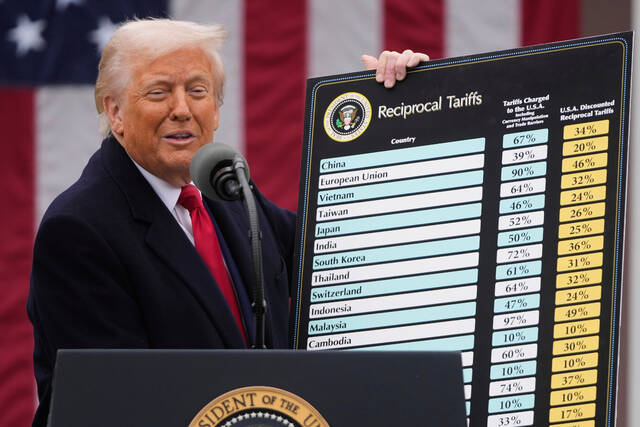Since the Child Tax Credit was significantly expanded as part of President Biden’s American Rescue Plan, working families in Pittsburgh and across Southwestern Pennsylvania started receiving up to $300 per child per month starting July 15. While the tax credit expansion came as a way to tackle the economic fallout caused by the pandemic, the challenges facing our families and children were here before the pandemic and will be here after. That is, unless we do something about it.
With 90% of Pennsylvania children eligible, the tax credit is one major way to help reduce child poverty, with some estimating it could help reduce child poverty by half. These numbers make it clear — extending and eventually making the Child Tax Credit permanent is something we must do to help families and children for the long term.
At Trying Together, we support high-quality child care and education for young children through advocacy, community resources and professional growth. Along with our partners, we work to create a future where caregivers feel valued; children have access to high-quality learning environments; and families have the resources to support their children’s early learning experiences.
The Child Tax Credit is an important piece in the president’s Build Back Better plan that helps make our vision for the future a reality. Another important piece is the $450 billion proposed to make both affordable child care and universal pre-K possible for all. When families have access to affordable, quality child care, parents can stay in the workforce and earn more money for their families, and children can thrive. When children have access to quality prekindergarten, studies have found they are more prepared academically, socially and emotionally for school. To make real change in our children’s lives, we need to invest in them in multiple ways.
The tax credit provides an influx of cash that is necessary and at times life-altering for hard-working parents, but the benefits extend beyond their wallets. Through our work with early care and education professionals, we see how the money is being used to support and improve all aspects of children’s well-being.
We see families using their tax credit funds to pay for child care. Child care, particularly low-income working families for whom state subsidies only cover part of the cost is considered affordable if it costs families no more than 7% of their income, according to the U.S. Department of Health and Human Services (HHS), but many families spend way more than this amount. Biden’s American Families Plan and the House Education and Labor Committee’s proposal include investments to lower the cost of child care. The tax credit is another way to help address this issue.
It’s been inspiring to see the momentum the tax credit has already created in fighting child poverty, but the expanded tax credit is due to expire at the end of this year. Democrats in Congress are pushing to extend the tax credit until 2025 as part of Biden’s Build Back Better plan.
We call on our members of Congress, Rep. Conor Lamb and the entire Southwestern Pennsylvania delegation, to extend and eventually make permanent the Child Tax Credit, and invest in child care and pre-K to strengthen our nation’s investments in children and families. After seeing so many positive outcomes from investing in children and families in just a few short months, we know this is just the beginning. While the stimulus money for the Tax Credit and investments in the early care and education field help, if we are truly going to build back better, we need to keep prioritizing our children and helping their families with permanent solutions.
Cara Ciminillo is executive director of Trying Together, a local nonprofit organization that supports and advocates for quality child care and education.








